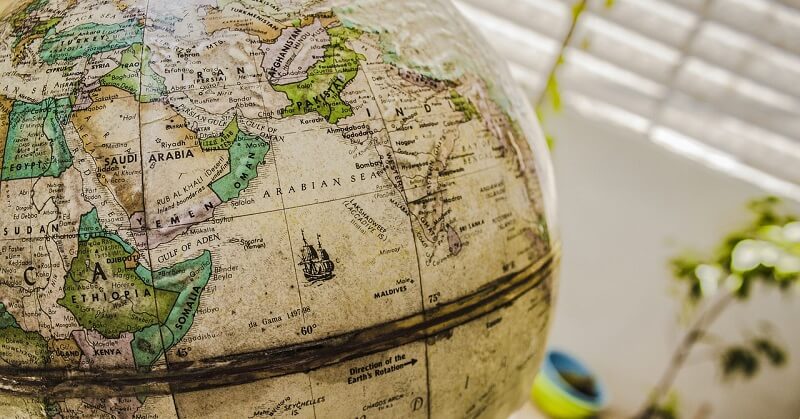The Civil Services Exam (CSE) is a national-level exam organized by the Union Public Services Commission (UPSC) and is popularly known as UPSC CSE. The exam is conducted to select qualified candidates as officers for the Indian Administrative Services (IAS), Indian Police Services (IPS), Indian Foreign Services (IFS), Indian Revenue Services (IRS), and other prestigious government services.
The UPSC CSE is considered one of India’s toughest examinations, and lakhs of candidates every year appear for the exam, with only a few thousand making it through to join the aforementioned prestigious services of India. The exam is conducted in three stages, i.e., the CSE Prelims exam (Objective Type Test), the CSE Mains exam (Descriptive Test), and Personality Test/Interview.
The Prelims exams comprise two papers, General Studies I and General Studies II (CSAT), and are only of qualifying nature. At the same time, the Mains exam comprises nine papers. All papers except Paper-A (Compulsory Indian language) and Paper-B (English) are of merit ranking. Out of these seven papers, two are optional, which means a candidate will have to choose a subject of his/her interest.
Geography has now become one of the most preferred subjects among optional subjects chosen by the candidates.
On that note, let’s talk about some important preparation tips that will help you ace the subject while enjoying it.
Know About The Syllabus In Detail

Before starting your preparation, carefully go through the UPSC CSE syllabus for geography to know precisely what to study for the exam. Furthermore, this will also prevent you from wasting your precious time on irrelevant topics that might not even be mentioned in the syllabus.
Apart from this, students must start with NCERT books and then should move to advanced level books such as Certificate Physical Geography by G C Leong.
Get Your Concepts And Facts Right

UPSC civil services exam is all about testing your clarity of concepts in each subject. Therefore, getting a good grip on the fundamentals behind every concept should be your primary goal. At the same time, you must cover each topic completely in-depth, like the Classification of earthquakes, and must not leave anything in these times of high competition level.
For instance, a few physical geography questions about earthquakes don’t mean you only need to have a basic understanding of earthquakes. You must dig deeper to learn about its various aspects such as Effects, Types of earthquake waves, Methods of detection, Measurement, and more to the questions from the topic.
Furthermore, like any other subject, geography is filled with facts, names, and figures. Therefore, it is important to keep a note of them and revise them regularly.
Go Through the Previous Years UPSC CSE Papers

Understanding the pattern and type of questions asked is very important to get an idea of how UPSC sets papers to avoid any surprises during the exam. To achieve this, one must go through as many previous year’s UPSC CSE papers as one can. This will also help you to get an idea of the trends in the weightage of different topics.
Link Geographical Concepts With Current Affairs

We come across news of natural phenomenon and calamities almost every day in newspapers, as most of the topics in the subject, whether climate or physical geography, are dynamically linked with national and international events.
So whenever you are reading about a natural calamity or phenomenon in newspapers or magazines, try to relate it with what you have studied about it. This way, you will be preparing for current affairs as well as revisiting previously studied geographical concepts.
Memorize Facts Using Mnemonics
The most fun and effective way to learn facts in geography is using mnemonics.
For instance, to remember the oceans from largest to smallest, you can list all the oceans as per descending order of their sizes, i.e., Pacific Ocean, Atlantic Ocean, Indian Ocean, Southern Ocean, Arctic Ocean.
Taking out the first letter from each name and arranging them sequentially, we get ‘PAISA’ which is far easier to remember and can be used to recall the names quickly in the right sequence.
This way, you can easily memorize the names of countries, continents, water bodies, mountain ranges, etc., in the right order.
Identify The Most Frequently Asked Question Areas
There are topics and subtopics from where one could definitely expect questions in the exam as they have been most frequently asked in previous years.
These might include questions on River bodies and their tributaries, National parks, Wildlife sanctuaries, Agriculture, Indian monsoon, Global natural events (earthquakes, tsunamis, volcanic eruptions with their geographical locations), and more.
Maps Are Important
A majority of geography questions are directly or indirectly related to maps, and the past trends give us a hint that these questions are here to stay for a while. With that said, you should have an in-depth knowledge of both the Indian as well as the world map. You should be able to point out Important Indian Cities, Peaks, Mountain Ranges, River Systems, etc., on the map and make short notes of important facts and news regarding them.
Follow Us: Facebook | Instagram | Twitter |
Entertales is on YouTube; click here to subscribe for the latest videos and updates.














